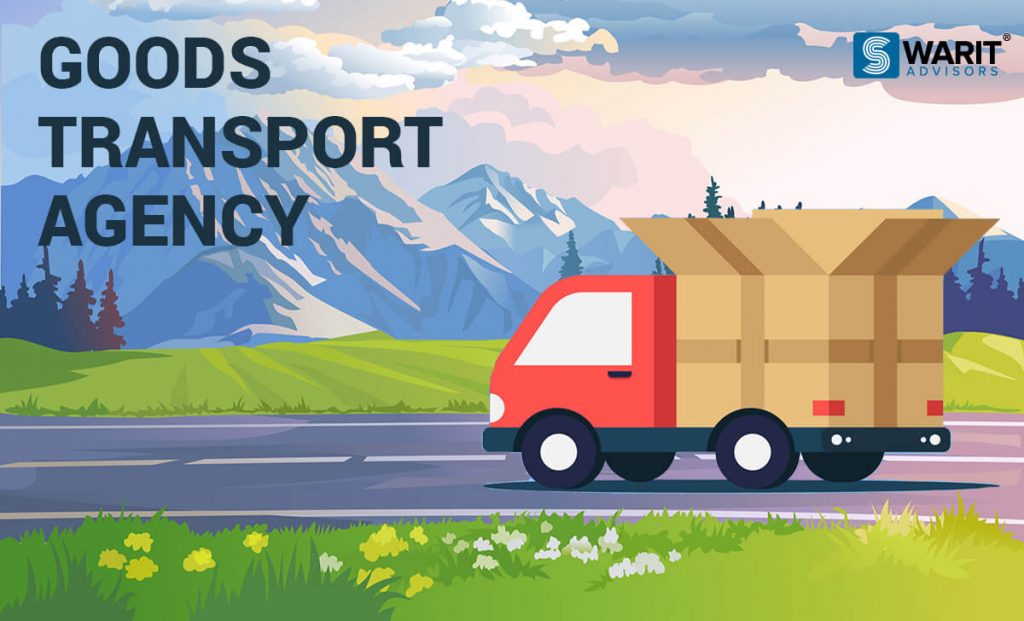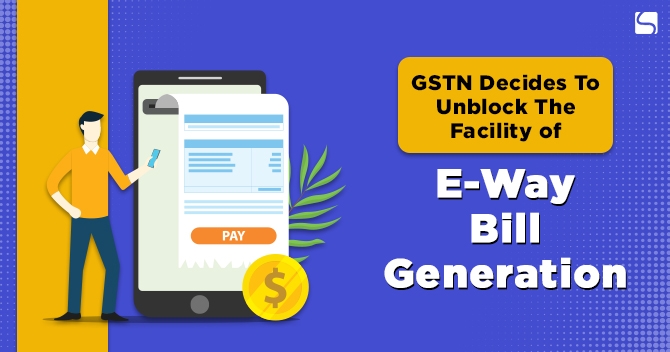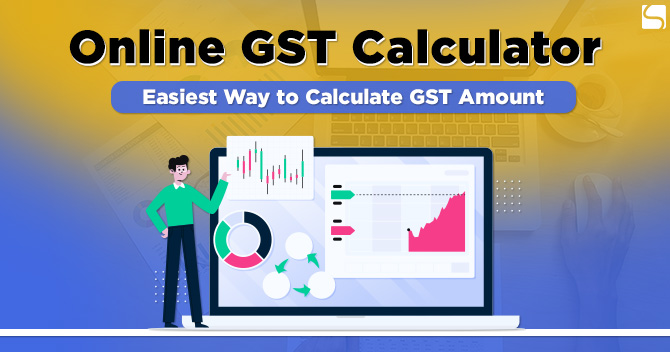Goods Transport Agency (GTA) under GST

Khushboo Priya | Updated: Jan 30, 2019 | Category: GST
Understanding the significance of Goods Transport Agency (GTA) under GST is vital because GTA holds an extremely invaluable role under the Goods and Services Tax as well as for businesses. As the name suggests, GTA is related to transportation of goods and has certain conditions to be known as the same, which we have discussed later.
Therefore, in this blog, we have covered various aspects relating to the Goods Transport Agency (GTA) under GST and the provisions of GST applicable on the GTA. So, let’s get started with the definition of GTA.
Table of Contents
What is a Goods Transport Agency?
According to Section 65B (26) of the Finance Act, 1994, Goods Transport Agency is defined as a person who provides service related to the transportation of goods by road and issues consignment note, by whatever name called.
It implies that only people issuing a consignment note will be considered as GTA. People without consignment note and still hiring out vehicles for goods transportation aren’t GTA. Hence, a consignment note is an essential condition to be recognized as a GTA.
But the question arises, what is a consignment note? Let us find out.
What is a consignment note and what does it contain?
Goods Transport Agency issues a document against the receipt of goods with the intent of transporting goods by road in a goods carriage. This document is known as a consignment note. If the transporter doesn’t issue any consignment note, the service provider will not come within the scope of the goods transport agency.
When the consignment note is issued, the transporter becomes in-charge of the goods, and hence, he becomes accountable for the goods until the consignee receives the goods safely.
A consignment note has serial numbers and contains the following description:
- Name of the consignor;
- Name of the consignee;
- Description of goods;
- Address of the sender;
- The delivery address;
- Registration number of the carriage of the goods;
- The person accountable for paying GST, be it consignor, consignee, or the GTA.
What services does a GTA offer?
A GTA not only offers services related to the transportation of goods but it also provides other services such as:
- Temporary warehousing;
- Packing or unpacking;
- Loading or unloading;
- Trans-shipment, etc.
If such services are carried and not administered as independent activities, then these services also fall under the Goods Transport Agency.
Who is liable for paying GST while hiring a GTA?
If a Goods Transport Agency offers services to some specific businesses, the recipient of services is supposed to pay GST under reverse charge.
What are the rates of GST on GTA?
| Services by GTA | GST rate |
| GTA carrying goods, where consideration charges for goods transportation on a consignment transported in a single carriage are less than Rs. 1,500. | 0% |
| For GTA carrying:
• Organic manure; • Agricultural produce; • Magazines or newspapers registered with the Registrar of Newspapers (RON); • Salt, milk, and food grains such as flour, rice, and pulses; • Military or defence equipment; • Relief materials for victims of man-made or natural disasters. |
0% |
| Goods Transport Agency carrying goods where consideration charged for transportation of all such goods for a single consignee doesn’t surpass Rs. 750. | 0% |
| GTA carrying any other goods | 5% No ITC (input tax credit)
OR 12% with ITC |
| Hiring out a vehicle to a Goods Transport Agency | 0% |
| Rates applicable as per Notification No. 32/2017- Central Tax (Rate) dated 13th October 2017 | |
| Transportation of goods of unregistered persons | 0% ** |
| Used household goods for personal use | 0% ** |
| Goods transportation of unregistered casual taxable persons | 0%** |
| Rates applicable as per Notification No. 20/2017- Central Tax (Rate) dated 22nd August 2017 | |
| Transportation of Goods (GST paid by GTA)* | 5% No ITC
Or 12% with ITC |
| Transportation of goods of 7 specified recipient* | 12% with ITC (paid by GTA)
Or RCM 5% with ITC |
Can a GTA register itself under GST?
As per the Notification no. 5/2017- Central Tax dated 19/06/2017, a person involved in making only supplies of taxable goods or services on which reverse charge applies is exempted from obtaining registration under GST.
What are the conditions required for registration of a Goods Transport Agency?
For obtaining registration of a GTA, there are certain cases as described below:
Case1:
- If GTA is transporting goods of the registered dealer or any of the recipients of reverse charge mechanism (RCM) whose turnover is Rs. 9 lakhs, then the registered dealer or recipient of service under RCM is liable for paying GST.
- Any GTA transporting goods of the unregistered dealer (URD) is liable to pay GST if his turnover is Rs. 3 lakhs.
- In the case that the aggregator turnover is Rs. 12 lakhs or is below the Rs. 20 lakhs threshold, then the GTA doesn’t require registration.
Case2:
- GTA is transporting goods of the registered dealer or any of the recipients of the reverse charge mechanism (RCM) whose turnover is Rs. 19 lakhs, then the registered dealer or recipient of service under RCM is liable for paying GST.
- Any GTA transporting goods of an unregistered dealer (URD) is liable to pay GST if his turnover is Rs. 3 lakhs.
- In the case that the aggregator turnover is Rs. 22 lakhs or is above Rs. 20 lakhs threshold, then the GTA will require to register as it is supplying to URD.
Case3:
- GTA is transporting goods of the registered dealer or any of the recipients of reverse charge mechanism (RCM) whose turnover is Rs. 25 lakhs, then the registered dealer or recipient of service under RCM is liable for paying GST.
- Any GTA transporting goods of the unregistered dealer (URD) is liable to pay GST if his turnover is Rs. 0 lakhs.
- In the case that the aggregator turnover is Rs. 25 lakhs or is below the 20 lakhs threshold, then as per the Notification No. 5/2017, the GTA doesn’t need to register.
Applicability of GST under reverse charge mechanism for a GTA
Before we plunge into the applicability of GST under the reverse charge mechanism (RCM), let us first understand what RCM means. RCM is a mechanism where the recipient or receiver of the goods and or services is liable to pay GST instead of the supplier.
The following businesses or entities or the recipient of services are required to pay GST under reverse charge:
- The casual taxable person;
- A GST registered person;
- Factories registered under the Factories Act, 1948;
- Any cooperative society established under any law;
- A body corporate governed by or established under any law;
- All those societies registered under the Societies Registration Act, 1860[1] or under any law;
- The partnership firm whether or not registered (including AOP, Association of Persons).
Who is liable to pay GST under the Reverse Charge Mechanism?
As per Notification No. 13/2017- Central Tax dated 28/06/2017, the person paying or liable for paying the freight for transporting goods by road in a goods carriage located in the taxable territory shall be treated as the receiver of service.
Payment by the sender
If the consignor (supplier of goods) pays the GTA, then the consignor will be treated as the recipient. If he falls in the category of persons described above, then he would have to pay GST on the reverse charge mechanism.
Payment by the receiver
If the consignee (the receiver) pays the GTA, then the receiver of the goods will be treated as the recipient of transportation services. In case he falls in the category of the above-described person, then he would have to pay GST on the reverse charge basis.
The mode of payment of GST by a GTA
A GTA cannot avail of any input tax credit (ITA) on any of the inputs. Hence, the payment of tax must be done only through cash in the basic modes such as net banking or card or cash (only up to Rs. 10, 000).
What returns must be filed by a GTA?
If the services of the GTA lie under RCM, then a Goods Transport Agency doesn’t need to register any return.
However, if a GTA registers itself, collects and pays the tax under normal charge at a rate of 12%, then it will have to file the normal three monthly returns as follows:
- GSTR-1: It’s a monthly return that explains all sales (outward supplies) of a taxpayer.
- GSTR-2: It’s a GSTR-2 is a monthly return that reviews the details of inward purchases of taxable goods and/or services.
- GSTR-3: It’s a monthly return with the compiled details of sales, purchases, and sales during the month along with the amount of GST liability.
Note:
Currently, the filing of GSTR-2 and GSTR-3 is suspended. Therefore, one can only file these returns when the government notifies the due dates for the same.
Conclusion
The above discussion explains that all goods transported by roads aren’t by a Goods Transport Agency. GTA must mandatorily issue a consignment note for being recognized as a GTA. Only GTA services are taxable under GST while the services of goods transportation by a person other than GTA are exempted. In case the Goods Transport Agency service supplier hires any transport for providing his output service, no GST is payable on such inputs.
Transportation is dealt with in the business world by GTA and non-GTA. The Non-GTAs are specifically exempted from payment of GST. In most of the cases of those who provide agency services in transport, the liability is cast on the receivers, or otherwise, the GTA can pay the GST under the forward charge mechanism.
In case you have any queries regarding the Goods Transport Agency (GTA) under GST, then you can unhesitatingly contact Swarit Advisors.
Also, Read: Disadvantages and Demerits of GST.














